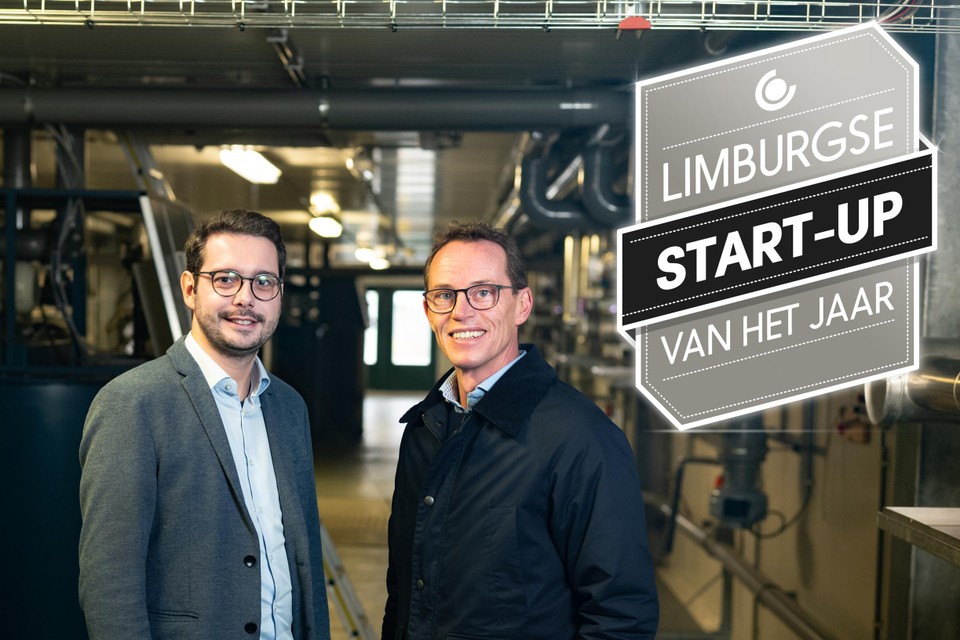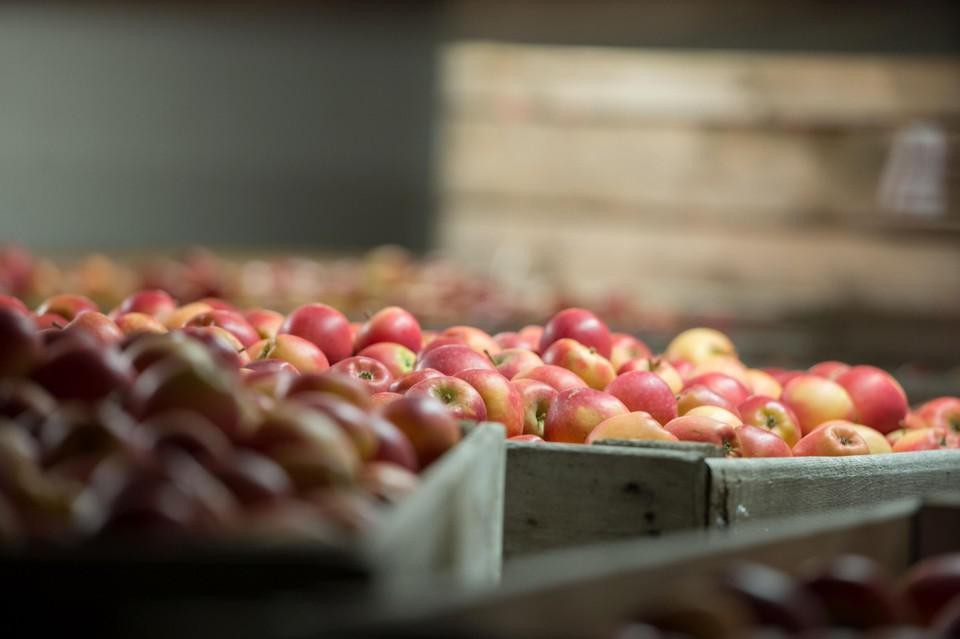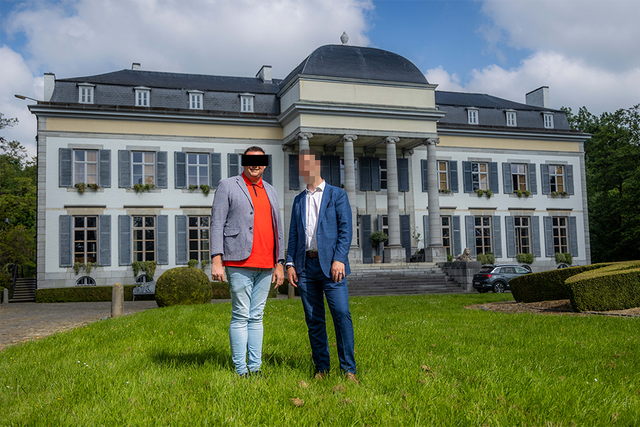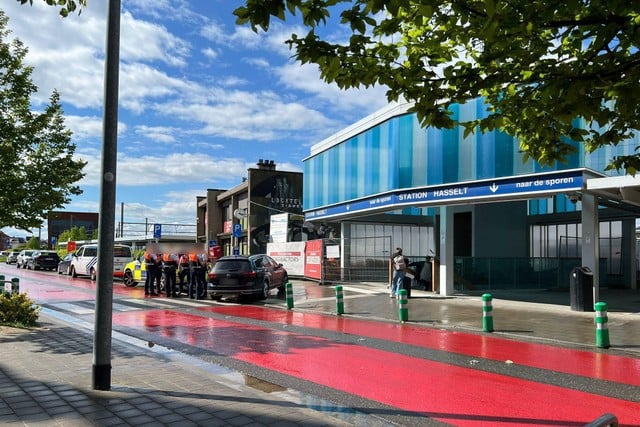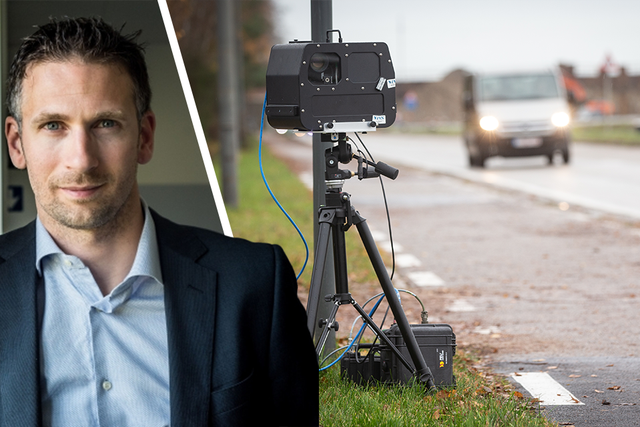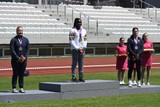Niels Bessemans (left) and Pieter Coppens. — © Tom Palmaers
Limburg Start-Up of the Year improves preservation of apples and pears
Optiflux, located on the Greenville campus in Houthalen-Helchteren, has been selected as Limburg Start-Up of the Year. The company has developed a technology that allows fruit to be preserved more effectively, with lower losses and reduced energy costs.
The selection of Limburg Start-Up of the Year is an initiative of Limburg StartUp, the start-up community of the LRM, and takes place in the context of selecting the Limburg Entrepreneur of the Year. Optiflux succeeds Blue Foot Membranes as the winner.
The jury, consisting of Professor Pieter Vandekerkhof (UHasselt), Bieke Van Gorp (Fibricheck) Kristof Cox (Deloitte) and Marc Beenders (LRM and Limburg StartUp), chose Optiflux after an exciting deliberation. The other candidates were Blooloc, Raw Stadia and Deltaray. The latter company is also located on the Greenville campus in addition to Optiflux.
“There were four very strong candidates this year,” says Jury Chairman Pieter Vandekerkhof. “But Optiflux managed to convince us by launching their innovation and winning over customers in just one year. We strongly believe in the scalability of their application and we are confident that Optiflux will proudly promote the award at home and abroad.”
Fruit storage
Optiflux developed an innovative method to better preserve fruit after harvest. The technique, which is the result of years of research, allows fruit to be preserved with far fewer losses and with lower energy consumption. “Belgium produces an average of about 600,000 tons of hard fruit, such as apples and pears, per year,” explains Niels Bessemans, co-founder, CEO and CTO. “After the picking season, that fruit is stored in cold storage for a few weeks to several months so it can be sold throughout the year.”
© Raymond Lemmens
To slow down ripening and preserve quality, the fruit is kept in a controlled atmosphere, at a low temperature and with a limited amount of oxygen. “The fruit is effectively kept in a coma, so consumers can enjoy juicy apples and pears all year round,” Niels Bessemans explains. This often involves the use of so-called ethylene blockers. Ethylene is a substance that promotes the ripening process but ethylene blockers are not permitted in organic farming. “Optiflux’s storage technology provides a solution for these growers.”
Artificial intelligence
To avoid losing fruit, the ripening process is monitored closely. “That is done manually at the moment,” Bessemans says. “This is labour intensive and, all in all, gives a limited view of the condition of the fruit. With dire consequences. Globally, as much as 45 percent of fresh produce is lost as a result.”
The technology developed by Optiflux changes all that. “Fruit breathes,” Niels Bessemans explained. “Our measurement method and associated software algorithms continuously measure the conditions in the cold store and process the data intelligently. Based on those measurements, the system automatically adjusts storage conditions by controlling the oxygen supply, for example. This provides energy savings through efficient refrigeration, better storage conditions, reduced loss of quality and therefore less waste.” Niels Bessemans makes the case that Optiflux’s technology can reduce energy costs by 10 to 15 percent, a significant saving in these times of energy crisis.
Capital Round
Optiflux was founded two years ago by Niels Bessemans, Pieter Coppens, who holds the position of COO, Pieter Verboven and Bart Nicolaï, and is the result of years of research at KU Leuven, in collaboration with the Flemish Centre for Conservation of Horticultural Products and the Federation of Belgian Horticultural Cooperatives. Today, Optiflux employs four full-time staff. There are also two vacancies.
In 2021, Optiflux raised 600,000 euros in an initial capital round from investment company LRM, Gemma Frisius Fund, KU Leuven, the Belgian Fruit Auction, BelOrta and the founders.
Optiflux’s product has been on the market since last year, and interest is already high. “Since we were present at the Fruit Logistica trade fair in Berlin in February, requests have been coming in from all over the world,” says Niels Bessemans, who still wants to focus primarily on the European market at first. “That market is big enough on its own. There are an estimated 50,000 cold stores in Europe, about 1,500 to 2,000 in Belgium.” Optiflux wants a 3 percent market share by the year 2025. That would account for sales of 2.5 million euros.
